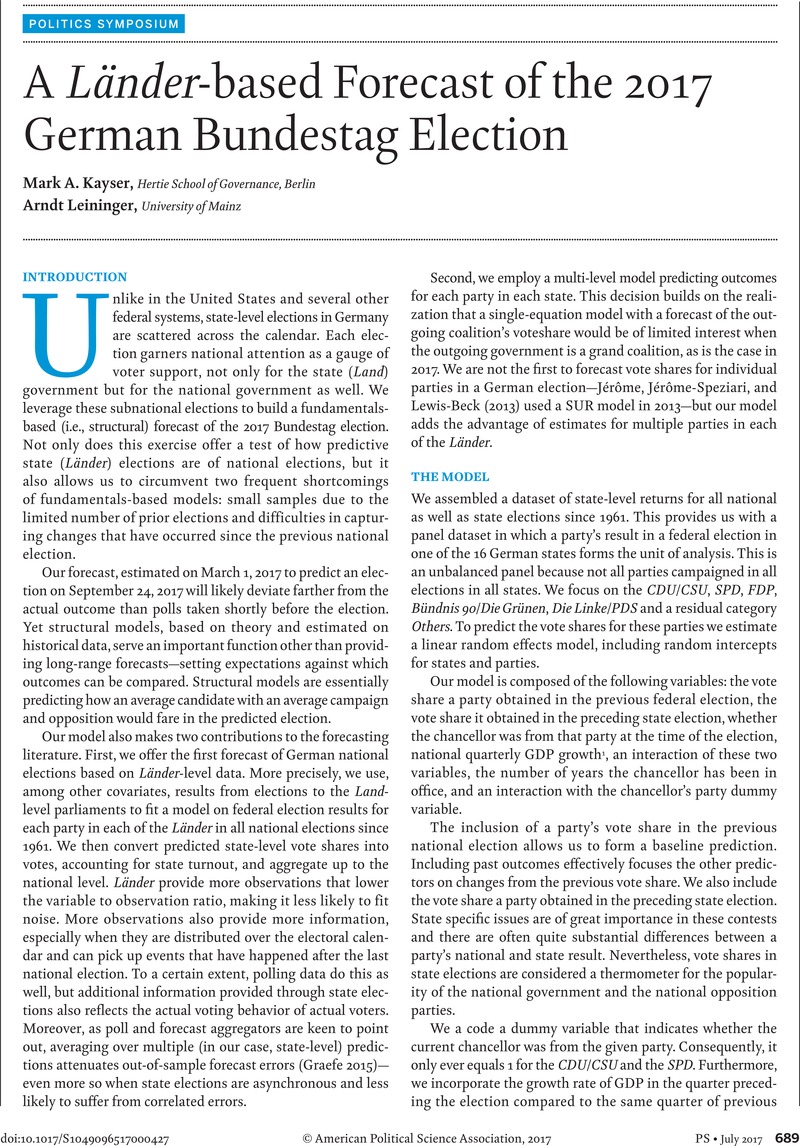Crossref Citations
This article has been cited by the following publications. This list is generated based on data provided by Crossref.
Neunhoeffer, Marcel
Gschwend, Thomas
Munzert, Simon
and
Stoetzer, Lukas F.
2020.
Ein Ansatz zur Vorhersage der Erststimmenanteile bei Bundestagswahlen.
Politische Vierteljahresschrift,
Vol. 61,
Issue. 1,
p.
111.
Frei, Xenia
Langer, Sebastian
Lehmann, Robert
and
Roesel, Felix
2020.
Electoral Externalities in Federations – Evidence from German Opinion Polls.
Kyklos,
Vol. 73,
Issue. 2,
p.
227.
Johnston, Richard
and
Lachance, Sarah
2022.
The predictable campaign: Theory and evidence.
Electoral Studies,
Vol. 75,
Issue. ,
p.
102432.





